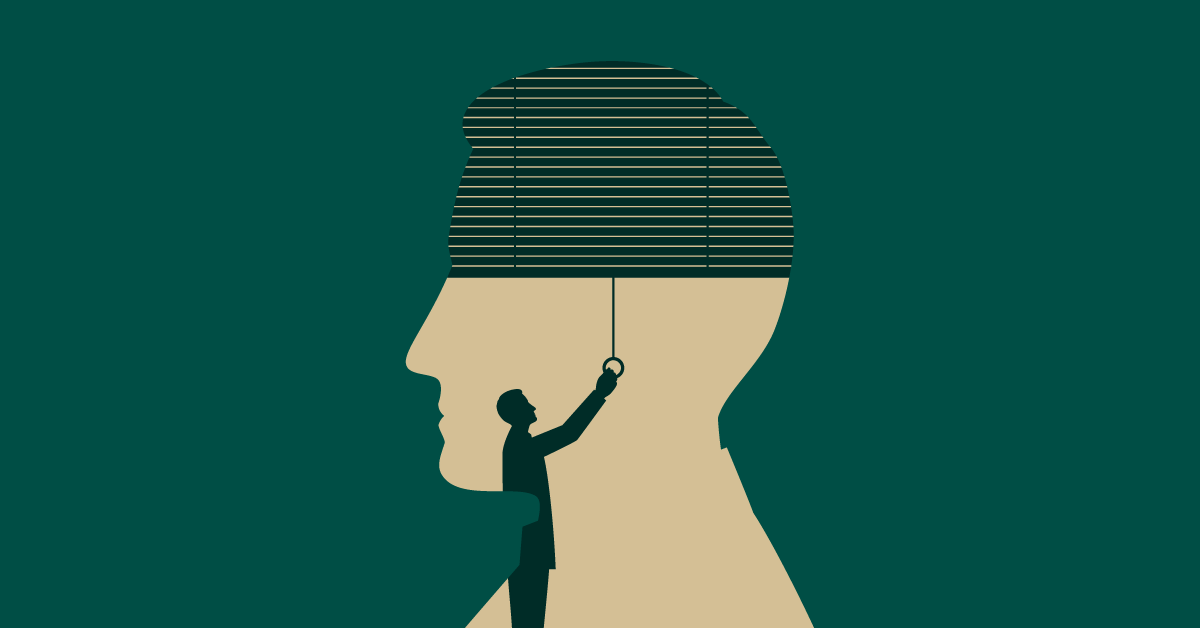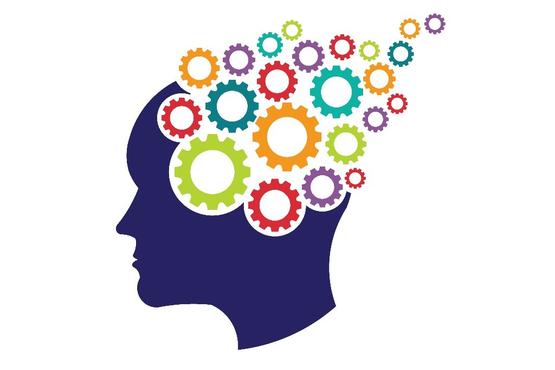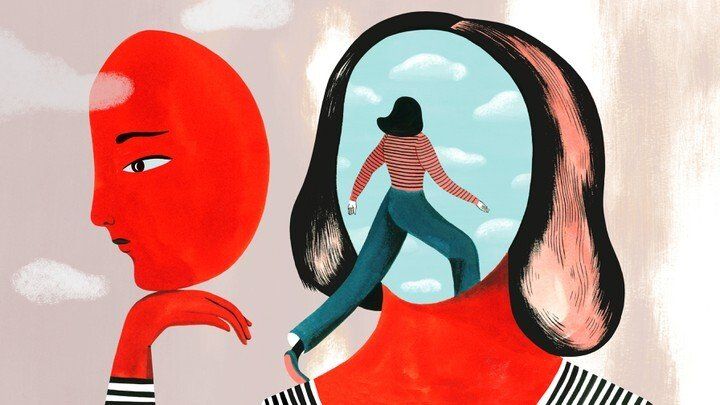Meet The Most Trusted Psychologist and Psychiatrist Doctor
- Unconditional Support & Guidance
- Heal Yourself with Help of Experts
- With treatment and therapy, you can be free from anxiety, depression, insomnia, addictions, compulsions and thought disorders
It is part of a Psychiatrist Doctor and Psychologist, follow a professional code of ethics to maintain a patient’s privacy. At Pace Hospitals, we take confidentiality of our patients seriously and do not violate it under any circumstances.
Set Yourself Free
Embrace the tides of change
BOOK YOUR APPOINTMENT
To cut down on your waiting time, simply book your appointment online or request an appointment by filling up the details.
Psychiatrist Appointment Query
Thank you for contacting us. We will get back to you as soon as possible. Kindly save these contact details in your contacts to receive calls and messages:-
Appointment Desk: 04048486868
Whatsapp: 8977889778
Regards,
PACE Hospitals
Hitech City and Madinaguda
Hyderabad, Telangana, India.
Oops, there was an error sending your message. Please try again later. Kindly save these contact details in your contacts to receive calls and messages:-
Appointment Desk: 04048486868
Whatsapp: 8977889778
Regards,
PACE Hospitals
Hitech City and Madinaguda
Hyderabad, Telangana, India.
What We Treat?
Reach us out for
-
Workplace stress
In small doses, stress can be a motivator, helping you perform better and teaching you ways to overcome obstacles. However, when the pressure builds with too many responsibilities, unrealistic expectations and personality conflicts, it can lead to work-related stress. Stress may also be induced as a result of workplace bullying, harassment and discrimination.
Work-related stress is known to adversely affect employee engagement, morale and productivity. All of these could potentially harm the business goals.
What are the signs of work-related stress?
- Lack of confidence
- Lack of productivity
- Negative thoughts and feelings
- Irritability
- Mood swings
- Reduced appetite
- Avoiding social situations
What are the benefits of stress therapy?
Psychotherapy provides employees an opportunity to let out negative thoughts and feelings, thereby reducing stress. Some of the benefits of therapy include:
- Learn to identify triggers or thoughts that increase anxiety
- Understand oneself better, which leads to increased confidence levels.
- Learn to relax and stay calm
- Increased engagement with co-workers
- Reduced absence and turnover
-
Anxiety
Anxiety is the feeling of fear or nervousness that we all feel when faced with a problem or making an important decision. It is a normal emotion. However, when a person feels extremely anxious and the feeling lasts for long periods of time, he or she is said to be suffering from an anxiety disorder.
Anxiety disorder is a maladaptive response to stress. It is the constant worry & fear that keeps a person from carrying on with life normally.
How do you know if you have an anxiety disorder?
Anxiety can feel different for each person. While for some it is butterflies in the stomach, for others it is palpitations. Some may even feel a disconnect between body and mind. Some of the common signs & symptoms are:
- Panic, fear & uneasiness
- Sleep disorders
- Unable to stay still or calm
- Cold feet
- Palpitations
- Dry mouth
- Nauseas
- Tense muscles
- Shortness of breath
Why see a psychiatrist for anxiety disorder?
Interestingly, every individual’s reaction to stress and ability to cope with it depends on his/ her socio- cultural background and genetic proneness.
This means that symptom presentation, explanation of the illness and coping abilities of every individual is different. Only a qualified and experienced psychotherapist can understand the meaning and importance assigned by an individual to these symptoms and the socio-cultural factors driving it.
Besides trying to self manage anxiety disorder (eg: reading up on Google without seeking professional help) further accentuates anxiety.
Is anxiety disorder curable?
Developments in epidemiology and psychobiology have significantly advanced our understanding of the anxiety disorders in recent years. Advances in pharmacotherapy and psychotherapy of these disorders have brought realistic hope for relief of symptoms and improvement in functioning to many people.
What are the common symptoms of anxiety?
- Inability to concentrate
- Restlessness
- Thinking of the negative most outcome in most scenarios
- Exaggerated phobias (fear of heights, darkness etc.)
- Sudden shivering, dryness of mouth, giddiness, palpitations etc
- Many times anxiety presents with depression
What are some useful tips to cope up with anxiety?
- Cut down on caffeine, as it is a mood altering drug & tends to make symptoms of anxiety worse.
- Eat well balanced meals & make exercise a priority.
- Sleep disorders & anxiety tend to go hand in hand. Make sleep hygiene a priority.
- Maintain a positive attitude and accept that you cannot control everything.
- Understand your triggers.
-
Depression
We all experience sadness at times. But depression is more than just feeling blue. It is a feeling of despair & extreme sadness that tends to last for more than just few days. It interferes with a person’s daily activities & may require a long term treatment.
Depression is one of the most common mental disorders with over 250 million people are affected globally(WHO).
How do you know you are depressed?
Here are some common signs of depression:
- Agitation & irritable mood
- Persistent feelings of sadness or hopelessness
- Difficulty making even simple decisions
- Social Isolation
- Fatigue
- Sleep disturbances
- Significant weight loss or weight gain
- Recurrent suicidal thoughts
What are the causes of depression?
Certain life events such as a death of a family member, breaking up with a loved one can lead to depression. Financial problems and stressful environment at work can also play a role
Personality: Certain personality traits increase risk of depression. People with low self esteem & those who tend to be severely self critical are more susceptible.
Illness: Chronic or life threatening illnesses tend to trigger depression in some individuals.
Drug or alcohol abuse: Excessive consumption of alcohol or use of drugs can increase a person’s risk of depression
How does your Psychotherapist diagnose depression?
There is no one test that helps diagnose depression. The diagnosis is made based on your symptoms and a psychological assessment. In most cases, your psychotherapist would you a series of questions about your moods, sleep patterns, activity level, appetite etc to evaluate your psychological state.
How is it treated?
There are various approaches to treating depression. Some of the treatment modalities include:
- Pharmacotherapy
- Integrative psychotherapy
- Cognitive behavioural therapy
- Psychodynamic therapy
- Light Therapy
- Alternative therapies such as meditation or acupuncture
-
Panic Attacks
A panic attack is when a person gets terrified or is overwhelmed with fear without any apparent danger. These episodes can be frightening and the person having it generally thinks that he or she is having a heart attack or losing control or even dying. Panic attacks can occur anytime, even during sleep.
If a person has recurrent episodes and spends significant time in constant fear of another attack, he or she may have a panic disorder.
How do you know it’s a panic attack?
Panic attack is a sudden and strong feeling of fear. Here are some of the signs that indicate a panic attack:
- Fast heartbeat
- Sweating
- Shaking
- Shortness of breath
- Chest Pain
- Nausea
- Dizziness
- Tingling sensation
- Hot flashes or chills
These episodes are usually brief and last no more than 10 minutes. People who have had a panic attack once are at a higher risk of having another one compared to those who never had a panic attack.
What causes a panic attack?
Although the exact cause remains unknown, there are certain factors which put you at risk. These include:
- Genetic factors
- Severe stress
- Sensitivity to fear or stress
- Traumatic experiences
- Excessive use of alcohol or drugs
How is it diagnosed?
The diagnostic process involves understanding the patient’s symptoms, thoughts, feelings & behaviour patterns along with a series of psychological tests. Certain lab and/or imaging might be required to rule out any other physical problems that may cause such symptoms.
How can it be treated?
Panic attacks can be effectively treated with the help of one of more of the following methods:
- Medications
- Talk therapy
- Cognitive behavioural therapy
- Lifestyle changes
-
Anger Management
Anger is an emotion that we all experience from time to time. It is totally normal, even healthy to express anger. However, rage, uncontrolled anger or anger that doesn’t subside for long periods of time can take over your life leading to violence, depression and even suicide.
Anger management is all about learning and recognising the triggers and taking measures to deal with the situation without hurting oneself or others.
What are the causes of anger?
Anger may be a result of internal or external factors. Internal factors include perceived failures or injustices. External factors are outside the control of the individual such as humiliation or loss of privilege or property.
Who needs anger management therapy?
Anger management therapy is recommended for people who experience the following:
- Persistent negative thinking
- Engaging in physical violence
- Persistent feelings of irritation or hostility
- Constantly feeling the need to suppress your anger
- Abnormal behaviour such as breaking objects when angry
- Avoid people or situations due to anxiety about outbursts
What is anger therapy?
Anger therapy is a psychotherapeutic program that can help you effectively deal with anger issues. There are many strategies available, but cognitive behavioural therapy is the most effective anger management therapy.
During your anger management therapy sessions, the therapist would teach you to:
- Practice Mindfulness
- Regulate emotions
- Identify situations that make you angry
- Develop skills to translate anger into assertiveness
- Calm yourself down
- Redirect your energy towards resolving the situation
- Communicate effectively
Here are some tips that can help you cope with anger:
- Keep a journal
- Exercise more often
- Practice mindfulness meditation
- Find a constructive hobby
-
Insomnia
Insomnia is a common sleep disorder that makes it hard for a person to fall asleep, stay asleep or causes them to wake up too early. Insomnia can be short term, lasting from a night to a few weeks or long term, with no sleep for 3 nights a week for a few months or more.
There are two types of insomnia. In the first type, known as primary insomnia, there is no underlying health condition for the patient’s sleep problems. This is caused by environmental factors such as noise, light or temperature, certain stress inducing life events such as death of a family member, loss of job divorce etc.
On the other hand, secondary insomnia means that the person has difficulty sleeping due to certain health conditions such as asthma, depression, cancer, arthritis etc. Some of the causes of secondary insomnia include:
- Depression or anxiety
- Pain resulting from cancer or arthritis
- Certain medications used for high blood pressure, asthma, allergies
- Excessive use of caffeine, tobacco or alcohol
- Endocrine disorders such as hypothyroidism
- Sleep disorders such as restless leg syndrome or sleep apnea
What puts you at risk of insomnia?
Almost everyone has an occasional sleepless or restless night. But, the risk of insomnia is higher due to certain factors such as :
- Severe stress
- Hormonal shifts during menstrual cycle & pregnancy
- Mental health issues
- Frequently changing shifts at work
Can insomnia be prevented?
Maintaining a good sleep hygiene can help prevent insomnia. Here are some tips:
- Have a sleep routine. Get to bed at the same time each night.
- Try to avoid naps during the day
- Avoid using phone prior to bed
- Avoid alcohol
- Exercise everyday
- Make your bedroom dark & quiet
How is insomnia treated?
Simple lifestyle changes such as changing sleep habits & managing stress can help restore sleep for most people. However, if these do not work, your psychotherapist may recommend one or more of the following treatment methods:
- Cognitive behavioural therapy
- Stimulus control therapy
- Relaxation techniques
- Light therapy
- Pharmacotherapy: Use of certain medications to help a person fall asleep or stay asleep or both
- Alternative therapies such as yoga or meditation
-
Woman's Mental Health Issues
Mental health issues occur irrespective of gender, race or age. However, due to social and biological factors, women are more likely to suffer from certain mental illnesses.
What are common mental illnesses in women?
Depression is common mental health issue among young women. Research indicates that women are twice as likely as men to get depression. The frequency and severity of symptoms differ from one person to another, but some of the common signs and symptoms include:
- Depression
- Irritability
- Tiredness
- Loss of interest in hobbies or exciting activities
- Feelings of hopelessness
- Thoughts of suicide
Depression in women can be effectively treated with the right combination of medications, psychotherapy and lifestyle modifications
- Anxiety
Anxiety disorder is another common mental health issue in women. Common symptoms include:
- Irritability
- Nervousness
- Fatigue
- Difficulty concentrating
- Insomnia
- Sweating or trembling
- Eating Disorders
Eating disorders are most common among women with nearly twice as many cases as men. Risk factors include:
- Chronic dieting
- Family history of eating disorder
- Poor body image
- Being a victim of body shaming
- Postpartum depression
Having a baby is a very exciting time, yet it is likely to trigger certain mental health issues in some women. Postpartum depression is common in women with a history of anxiety, depression or trauma.
- Bipolar disorder
Men and women are equally likely to have a bipolar disorder. However, women are more often affected by Bipolar II disorder. Women also tend to experience rapid cycles between highs and lows. Changing hormones that occur during menstrual cycles and menopause may also have an influence on the severity of the bipolar disorder.
- Borderline Personality Disorder
Borderline personality disorder impacts a person’s moods resulting in unstable or impulsive behaviour. It can adversely affect the patient’s work and family life. Research indicates that women are more likely than men to have this mental issue.
Tips for Women’s Mental health
- Eat a Nutritious and Balanced Diet
Eating healthy foods not only improves a person’s mood but also improves their physical health. It is advisable to avoid fried or sugary foods, consume alcohol and coffee in moderation to avoid.
- Exercise Regularly
Regular physical activity improves sleep patterns and even reduces stress levels. It may also help in managing depression and anxiety.
- Get a job that you love
A stressful work environment is likely to worsen a woman’s mental health issue. A change of job can give her a new sense of purpose while improving symptoms of her mental illness.
-
Psychosis and Abnormal Behaviour
Psychosis is a condition that adversely impacts how a person’s brain processes information. The affected patient loses touch with reality and sees, hears or believes things that are unreal. This can be scary for the person experiencing it. Sometimes, he or she may also hurt themselves or others.
Psychosis does not start all of a sudden. The progress is gradual and there are signs and symptoms one can notice as the disease progresses.
What are the warning signs of psychosis?
- Trouble concentrating
- Lack of self hygiene
- Spending more time alone
- Being overly emotional
- No emotions at all
What are the signs of early psychosis?
- Inability to pay attention or think clearly
- Keep away from friends and family
- Have unusual beliefs or thoughts
- Hear, see or taste things that others don’t
What are the symptoms of a psychotic episode?
- Hallucinations: Hearing voices when nobody is around, seeing things that are not there, experiencing weird sensations and feelings.
- Delusions: Firmly holding on to false beliefs which are contradicted by reality.
What causes psychosis?
The exact cause of psychosis is not always clear, but some of likely causes include:
- Genetics
- Trauma such as death of a family member or sexual assault
- Use of Drugs
- Illnesses such as
- Brain Tumors
- Strokes
- Parkinson’s disease
- Alzheimer’s disease
- Dementia
- HIV or other infections that attack the brain
-
Couple's Conflict
It is perfectly normal to have disagreements and conflicts in relationships, especially in a marriage. It is inevitable for people to have difference of opinions, and needs & desires to clash at some point. However, to have a happy & successful relationship, it is important to resolve conflicts in a healthy manner.
What is couple’s therapy?
Couple’s therapy or marriage counselling helps effectively resolve conflicts by giving them tools & techniques to express themselves better, negotiate differences, solve problems & also argue in a healthy way. The therapy is generally short term lasting from few weeks to a few months depending on the level of differences between the couple. Couple’s therapy can help with specific issues such as sexual difficulties, conflicts about raising children, alcohol abuse or infidelity.
When to see a couple’s therapist?
- Communication between the partners has deteriorated
- When the couple fails to resolve the differences
- When one partner begins to act out on negative feelings
- When divorce seems like the only solution
- When the couple is living together only for the sake of children
What are the benefits of marriage counselling?
- Understand how to resolve conflicts in a healthy way
- Learn to express needs without resentment or anger
- Learn acceptance & forgiveness
- A deeper understanding of oneself and one’s partner
- Ability to work through a crisis
- Increased trust & honesty between the couple
-
Parent-Child Conflicts
Parent-Child Conflicts
-
Personality Disorders
Personality is the way one views life, relates to the outside world and understands oneself. It is the unique combination of thoughts, emotions and behaviours that makes one’s personality.
Personality disorder is a condition in which the person thinks, feels and behaves in a way that deviates from the norm, causes distress and trouble perceiving and relating to people and situations.
Personality disorder affects the following areas:
- How a person thinks about self and others
- How a person relates to other people and situations
- Emotional responses
- Controlling behaviour
What are the factors that increase your risk of personality disorders?
- Family history of personality disorders
- Abusive childhood
What are the types of personality disorders?
Personality disorders tend to begin during teenage and can last for a long time. There are many types of personality disorders:
- Antisocial personality disorder is a disorder in which the person has complete disregard for the needs and feelings of others. It involves consistently irresponsible and impulsive behaviour, and repeated violation of other’s rights.
- Avoidant personality disorder is a condition in which the patient feels extremely shy, super sensitive to criticism and has feelings of inadequacy.
- Borderline personality disorder is characterised by impulsive and reckless behaviour, intense emotions and unstable relationships. A person with this condition is likely to have strong feeling of emptiness with meaningless spurts of anger and even repeated attempts of suicide.
- Dependent personality disorder features submissiveness and a need to be taken care of. People with this disorder fail to make even the simplest of decisions without assurance from others.
- Histrionic personality disorder is characterised by excessive attention seeking behaviour and quickly shifty moods and emotions.
- Narcissistic personality disorder involves obsessive need for admiration with an absurd sense of self importance and a complete lack of empathy.
- Obsessive compulsive personality disorder involves being overly focused on the details with obsession for orderliness, perfection and control.
- Paranoid personality disorder is characterised by suspicion and complete lack of trust in others.
- Schizoid personality disorder involves social detachment and lack of emotional expression.
- Schizotypal personality disorder is a condition wherein the patient displays eccentric behaviour and distorted thinking. He or she may have social anxiety and be very uncomfortable in close relationships.
How is a personality disorder diagnosed?
The psychiatrist may conduct the following evaluations to diagnose a personality disorder:
Make an in depth enquiry about your health by asking the patient a series of questions.
Lab and screening tests to rule out other medical reasons, alcohol or drugs.
Psychiatric evaluation through discussion about the patient’s thoughts, emotions and behaviour.
What are the treatment options?
The type of treatment depends on the kind of personality disorder the patient has, the severity of the disorder and his or her present life situation. As personality disorders are long standing, they require treatment for several months or even years.
Some of the treatment options include the following:
- Psychotherapy
Psychotherapy can help the patient understand his or her behaviour and identify the thought patterns or feelings that act as triggers. A good psychotherapist can help the patient learn to effectively cope with symptoms. Some of the most effective types of psychotherapy include:
- Cognitive behavioural therapy
- Psychodynamic therapy
- Dialectical behaviour therapy
- Pharmacotherapy
There are many types of medications that can help relieve symptoms of personality disorders. Some of these include:
- Antidepressants to help with anger, sadness or impulsive behaviour.
- Mood stabilisers to reduce irritability and aggression and even out mood swings.
- Antipsychotic medications in case the patient experiences psychosis.
- Anti-anxiety medications to help the patient with sleeplessness or severe anxiety.
-
Alzheimer's
Alzheimer’s is a neurodegenerative disease causing cognitive decline and memory loss. It is the most common form of dementia.
The decline of mental capabilities in an Alzheimer’s patient is both chronic and progressive. However, the associated psychological problems tend to fluctuate depending on the patient’s mental & emotional state. As such, doctors emphasise on psychotherapy as key part of the treatment plan.
What are the symptoms?
An Alzheimer’s patient may experience the following:
- Reduced ability to remember new information leading to:
- Repetitive conversations
- Getting lost on familiar route
- Misplacing personal belongings
- Forgetting events of appointments
- Inability to recognise faces or common objects
- Impaired reasoning or difficulty exercising judgement
- Difficulty remembering common words
- Changes in personality or behaviour
What are the risk factors ?
- Age: Alzheimer’s commonly occurs in patients above 65 years old.
- Family history: A person is more likely to get it if he or she has a close family member with the condition.
- Genes: Certain genes have been linked to this disease.
How can psychotherapy help?
Psychotherapy can help the patient deal with anxiety and depression caused by the disease. It may also help with behavioural disorders such as delusions associated with it. A therapist can help the patient come to terms with their diagnosis and improve their overall outlook towards the situation at hand.
-
Dementia
Dementia is a collective term used to describe progressive deterioration of mental capabilities such as memory, thinking, orientation, language or decision making. Although dementia most commonly affects older adults, it is not a normal part of the ageing process. Alzheimer’s is the most common form of dementia.
This disease has a physical, mental, social & economic impact on the patient as well as his or her caregivers.
What are the common signs & symptoms of dementia?
- Loss of memory
- Difficulty remembering words
- Inability to reason or solve basic problems
- Difficulty with coordination & motor functions
- Confusion & disorientation
- Difficulty with visual & spatial abilities
- Personality changes
- Lack of emotional control
- Hallucinations
- Depression & anxiety
- Paranoia
What are the risk factors?
- Age of 65 or above
- Family History
- Unhealthy diet & lack of exercise
- High blood pressure & Cholesterol
- Obesity & Diabetes
- Smoking & Alcohol
- Vitamin & Nutrition deficiencies
How can it be treated?
Treatment for dementia begins with identifying and treating the underlying cause such as nutritional deficiencies, hormonal changes, tutors or drug related dementia. In some cases, where the cure is not available as in case of Alzheimer’s, treatment can be aimed at effectively managing the cognitive & behavioural symptoms.
A combination of medications, psychotherapy and environmental modifications can be effective in treatment of dementia. Certain psychosocial interventions such as behaviour oriented therapy, emotion oriented therapy, cognition oriented therapy and stimulation oriented therapy may also be beneficial for the patient.
All the services you need, in one place

Group therapy
Group therapy is a form of psychotherapy that involves a therapist working with many people at the same time. It is most commonly integrated into a comprehensive treatment plan along with individual therapy & medication.
Group therapy sessions generally involve about 8 to 12 participants, although it is possible to have smaller groups with 3 or 4 people. The group typically meets once or twice a week with members sharing their experiences and progress. The manner in which the session is conducted depends on the group objectives and the style of the therapist. While some therapists encourage a free form dialogue amongst the members, others may encourage practicing specific skills.
Who can benefit from group therapy?
Group therapy is often recommended for individuals with concerns related to:
- PTSD
- Depression
- Anxiety
- Grief
- Eating disorders
- Anger management
- Low self esteem
- Addictions
Why should you choose group therapy?
- Sharing feelings with a group of individuals can help relieve pain or guilt.
- Individuals can gain greater understanding of themselves by receiving feedback from the group and the therapist.
- Group setting is a perfect place to practice new behaviours.
- Being a part of a group helps people understand that they are not alone and what they are going through is universal.
- Observing some people overcome their problems can instil hope for recovery in others.

Art Therapy
Art Therapy is the use of artistic methods to improve mental health and treat certain psychological disorders. It comes a surprise to most people that art can be a technique of treating mental illnesses. But, art has the power to help people express themselves better, overcome stress and gain insights into different aspects of their personality.
The underlying premise of this form of therapy is that art or creative expression fosters healing and improves mental wellbeing. This therapy helps the individual develop awareness of himself or herself, explore his or her deep emotions and enhance social skills either by creating art or viewing other’s works.
What are the techniques used in this therapy ?
- Drawing
- Painting
- Finger Painting
- Colouring
- Sculpting
- Doodling
- Carving
- Making Collage
This therapy allows the clients to analyse their art, identifying themes and conflicts which tend to affect their thoughts, feelings and behaviours. A person does not need to be skilled in art or have any special talent to participate in art therapy.
Who can benefit from art therapy?
Art therapy is being used across the globe to treat a wide range of mental conditions. It has proven to be most effective in the following cases:
- Individuals experiencing severe stress
- Individuals with brain injury
- Children with Learning disorders
- Children with social or behavioural issues
- Mental health issues such as:
- Anxiety
- Depression
- Substance abuse
- Post traumatic stress disorder
- Geriatric issues
- Psychosocial issues
- Stress
- Emotional difficulties
- Relationship troubles

Guided Meditation
The practice of guided meditation involves drift into a meditative state with the assistance of a guide. Guided Meditation is now being used as a technique to help people with psychological disorders.
A guided meditation aims at achieving deep relaxation by focusing the mind in the present or forming mental pictures of places or events that an individual finds relaxing. One session of guided meditation can last from 15 minutes to one hour. During the session, your therapist would guide you through soothing visualisations that help reduce stress and tension.
What are the benefits of Guided Meditation?
Guided meditation has been successfully used to decrease pain, improve mood, reduce stress and enhance healing. Some of the general physical and mental benefits of guided meditation include:
- Enhanced self awareness
- Improved stress management skills
- Emotional well being
- Improved working memory and fluid intelligence
In psychotherapy, it has been used alongside other behavioural therapies and medication or as a standalone technique to treat many psychological conditions including:
- Eating disorders
- Anxiety
- Mood disorders
- Addictions
- Post Traumatic Stress Disorder (PTSD)
- Obsessive Compulsive Disorder (OCD)
- Depression
Tips for Guided Meditation
- Find your space to practice meditation
- Start with stretching to help improve circulation
- Be mindful of your posture
- Pay attention fo your breath
- Do not force yourself into meditative state
- Make meditation a part of your routine

Psychoanalysis
Psychoanalysis is a form of therapy that aims for a cathartic release of repressed emotions and memories. This is achieved by allowing the individual to dive deep into the big questions of life and matters of importance to understand the unconscious forces that are at play.
Psychoanalysis school of thought was founded by Sigmund Freud, who believed that unconscious mind is the reservoir of desires, thoughts and memories that often lead to psychological distress. This therapy involves gaining understanding of the childhood experiences to discover how these events may have shaped the person & how they influence his or her current behaviours.
Key features of psychoanalytic therapy:
- Explores full range of emotions that the patient experiences
- Explores feelings, thoughts and situations that the patient avoids
- Identifies recurring patterns in thoughts, feelings or behaviours
- Emphasises on talking about past experiences
- Explores interpersonal relationships
- Explores patient’s deep fantasies
What are the techniques used in psychoanalytic therapy?
In this form of therapy, the therapists look for patterns or significant events while the patient talks about his or her life. Apart from this, psychoanalytic therapy may also use techniques such as:
- Free Association
- Exploration of Transference
- Resistance Analysis
- Dream Interpretation
What conditions can psychoanalysis treat?
- Obsessive Compulsive disorder
- Depression
- Psychosomatic disorders
- Anxiety
- Relationship issues
- Sexual problems
- Identity crisis
- Emotional trauma

Cognitive Behavioural Therapy
Cognitive Behavioural Therapy is one of the most commonly used psychotherapies to treat a wide range of mental health issues. It is an effective tool that helps an individual identify destructive or negative thought patterns which adversely impact his or her behaviour.
CBT is a short-term and problem-specific treatment approach in which both the therapist and the patient are active participants working towards mutual established goals.
Who can benefit from CBT?
Generally, CBT is used to treat depression and anxiety disorders. But it can also help treat other conditions such as:
- Anger management
- Bipolar disorder
- Anorexia
- Bulimia
- Panic disorder
- Borderline personality disorder
- OCD
- PTSD
- Psychosis
- Schizophrenia
- Insomnia
- Alcohol abuse
- Sexual and relationship problems
How does CBT work?
In a cognitive behavioural therapy session, the therapist helps the patient identify and replace negative thought patterns with positive or healthier thoughts.
The first step involves creating awareness about the patient’s thoughts and underlying beliefs. Once these are identified, the patient would be asked to make changes by transforming thoughts and ideas that prevent him or her from leading a positive, healthy and happy life. The therapist would then ask you to practice changes in everyday life and discuss progress in the next therapy session. This is a gradual process and it is recommended that the patient takes small incremental steps towards behaviour change.
CBT is a proven technique which sometimes works as effectively as antidepressants. Research indicates that people who use a combination of CBT and medications tend to have better outcomes and benefits that last way longer than other treatment approaches.
The course of CBT treatments generally last anywhere between 50 and 20 sessions. Each session can last from 30 to 60 minutes.
How to make the most of a CBT session?
Here are some tips that can make cognitive behavioural therapy work for you
- Be an active participant, set goals and measure progress
- Be willing to share your thoughts and feelings
- Be open to receiving new insights
- Try not to skip your therapy sessions
- Do not expect instant results
- If you feel that you are not benefitting from the sessions, talk to your therapist

Existential Therapy
Existential Therapy is based on the tenets of the philosophy of Existentialism. Existentialism promotes the belief that life has no inherent or intrinsic meaning and it is the individual who assigns meaning to it.
They key aspect of existential therapy is that it helps the person to focus on and take responsibility for their choices and decisions. As such, it is most successful in cases where the individual is open minded and searching for meaning, and is willing for a constructive and honest self evaluation.
What are the advantages of Existential Therapy?
Existential Therapy can help an individual in the following ways:
- Lead a meaningful life
- Live in the present
- Come to terms with death
- Embrace one’s choices and decisions
- Feel empowered by the freedom to create one’s own path
Who can benefit from existential therapy?
Existential psychotherapy is an appropriate method for treating psychological and emotional dysfunctions arising from the deep questions of life such as meaninglessness, death or isolation. It is especially effective in helping patients with:
- Addiction
- Difficulty making good life choices
- Depression
- Anxiety
- Finding meaning to life
- Building self awareness
- Managing change
- People with terminal illnesses
How does existential therapy help?
This therapy helps individuals find answers to some of life’s questions such as:
- Who Am I?
- What is the purpose of my life?
- Why do people suffer?
- What am I doing here?
Although existential psychotherapy acknowledges the importance of an individual’s past, it focuses more on his or her current state of mind. The therapy aims to free the person from his own limited thoughts and accept their own responsibility in shaping their life.
Our Team of Psychiatrist Doctor and Psychologist
Dr. J Sharanya
MBBS, MD (Psychiatry)
Consultant Psychiatrist
Dr. J Sharanya is a Consultant Psychiatrist with expertise in Psychotherapy, Neuropsychiatry, Child & Adolescent Psychiatry, Psychosomatic Medicine, Social Psychiatry, Addiction Psychiatry and Geriatric Psychiatry. She has strong knowledge in De-addiction, Excellent in giving ECT, Expertise in using several Psychiatric scales and treating Mental Disorder, Depression, Personality Disorder, Anxiety etc.
Patient Testimonials
1,78,857
38,978
578
2011
Why Pace Hospitals?
- 150+ bedded super speciality hospital, CGHS & ISO accreditation.
- NABH and NABL accreditation.
- State-of-the-art Liver and Kidney transplant centre.
- Empanelled with all TPA’s for smooth cashless benefits.
- Centralized HIMS (Hospital Information System).
- Computerized health records available via website.
- Minimum waiting time for Inpatient and Outpatient.
- Round-the-clock guidance from highly qualified surgeons and physicians.
- Standardization of ethical medical care.
- 24X7 Outpatient & Inpatient Pharmacy Services.
- State-of-the-art operation theaters.
- Intensive Care Units (Surgical and Medical) with ISO-9001 accreditation.





